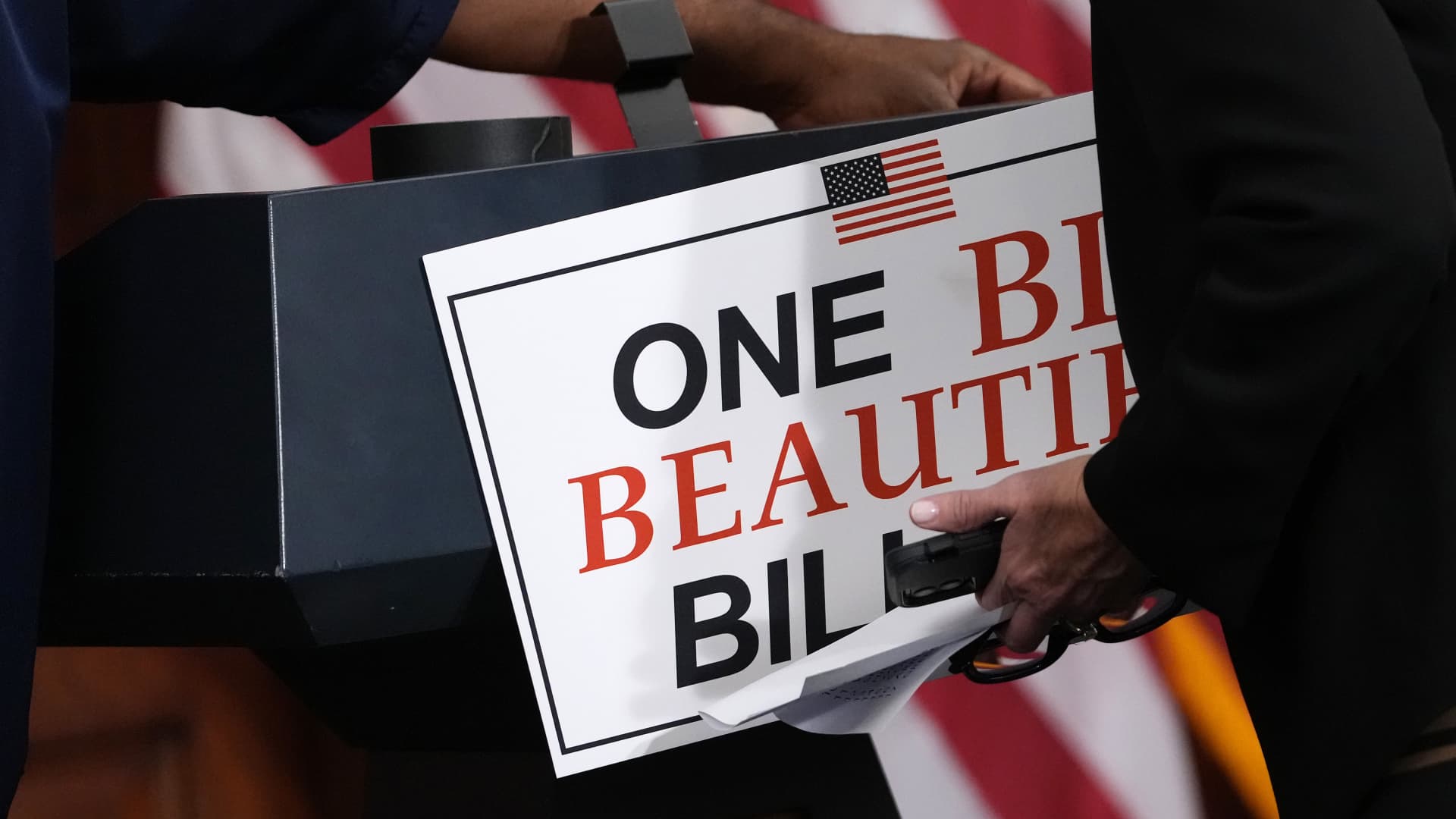Mario Tama | Getty Images News | Getty Images
Retail therapy is thinly coating voters’ anxieties from the presidential election — and their wallets know it.
About 27% of polled shoppers say they are “doom spending” — that is, spending cash despite concerns about the economy and foreign affairs — according to a new report by Intuit Credit Karma. The habit is more prevalent among younger generations, with 37% of Gen Zers and 39% of millennials saying they do it.
More than half, or 60%, of Americans surveyed are concerned with the state of the world and economy, more than they were a year ago. The site polled 1,001 U.S. adults in late October.
Top worries among doom spenders include the cost of living (55%), inflation (43%), and the presidential election (28%), the report found.
More than a third, 36%, of respondents say they can’t rationalize saving money due to feelings of uncertainty about the world and economy, per Intuit Credit Karma. That jumps to 47% of Gen Z and 43% of millennials.
Shoppers want a ‘sense of control’
Shoppers might be looking for “a sense of control, especially in a time period where it feels like so much is out of your control,” said Courtney Alev, consumer financial advocate at Credit Karma.
“Doom spending” affects young people the most as they happen to be “chronically online,” or spend a large amount of time on the internet and social media, Alev said.
To that point, 70% of Gen Zers and 52% of millennials consider themselves to be “chronically online,” Credit Karma found.
“If you’re already online reading all about the things happening in the world, it’s more likely that you’re going to really stress out and then look for those coping mechanisms,” Alev said.
More from Personal Finance:
How the ‘vibecession’ is influencing investors this election year
Presidential election offers opportunities and risks — for ETF investors
What top advisors tell investors about the markets during elections
Shoppers who report making impulse purchases based on social media spent an average $754 over the course of a year, according to a 2023 Bankrate.com survey.
In some ways, the urge was “born out of the pandemic,” said Ted Rossman, a senior industry analyst at Bankrate.
The trend is especially common among younger shoppers who may feel like “the deck is stacked against them,” he said.
Young adults‘ finances may be dragged down by student loan balances, and they are finding it to be increasingly unaffordable to buy a home, let alone rent their own place, Rossman said.
‘It’s a tough cycle to break’
Doom spending can lead to bigger financial woes. Credit card balances reached $1.14 trillion in the second quarter of 2024, according to the Federal Reserve Bank of New York.
As of June, 50% of cardholders carry a balance every month on their credit cards, a recent Bankrate survey found.
“The share who pay in full now is actually the lowest in four years,” Rossman said.
Cardholders are also carrying the debt for longer. About six out of every 10 people who have credit card debt have had it for at least a year, Bankrate found.
“It’s a tough cycle to break,” Rossman said, especially as interest rates remain fairly high for everyday cards.
The average annual percentage rate for credit cards is around 20.50%, down from a record high of 20.79% in August, according to Bankrate.com. The average APR for retail credit cards is 30.45%, a high, Bankrate found.
Election-related doom spending also comes just ahead of the busy holiday shopping season. About 20% of Americans plan to go into credit card debt this holiday season to pay for celebrations and obligations, according to Morning Consult.
Credit card balances can be very sticky. About 28% of 2023 holiday shoppers are still paying off debt they took on last year, NerdWallet found after polling 2,079 adults in September.
“Credit card debt is growing at the fastest rate among Gen Z and millennials,” Alev said.
Credit card balances are up by 66% for Gen Zers and 52% for millennials since March 2022 when the Fed started to hike interest rates, Alev said, citing Credit Karma member data.
The more debt you put on, the harder it will be to save money, she said.
“We are seeing these two things come together to really negatively affect the lives of many younger consumers,” Alev said.
‘Take the control back’
“Sometimes when people feel the most anxious is when they just don’t have any control,” said Rossman. “You can take the control back by putting a plan together.”
If you know there’s going to be a temptation to spend money, make space in your budget to such purchases, Rossman said.
“Set the money aside ahead of time,” he said, “Just take the impulse out of it.”
Ideally set the money in a separate high yield savings account so you’re getting a better return, said Rossman.


 Accounting1 week ago
Accounting1 week ago
 Personal Finance1 week ago
Personal Finance1 week ago
 Accounting1 week ago
Accounting1 week ago
 Finance1 week ago
Finance1 week ago
 Economics1 week ago
Economics1 week ago
 Economics1 week ago
Economics1 week ago
 Economics1 week ago
Economics1 week ago
 Personal Finance1 week ago
Personal Finance1 week ago












